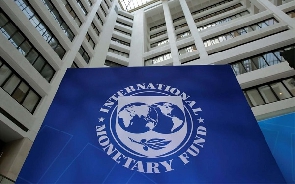IMF Mission staff and Ghanaian authorities have reached staff-level agreement on economic policies and reforms to conclude the second review of the three year ECF-supported program.
The move means Ghana will now have access to about US$360 million in financing once the review is approved by IMF Management and formally completed by the IMF Executive Board.
The Fund in a statement issued on its website said, "Performance under the program has been generally strong, with most quantitative objectives met and key reforms implemented."
"Ghana's strong policy and efforts have continued to yield positive results: economic growth is higher than initially expected; inflation has continued to decline; and both fiscal and external positions have improved significantly in 2023," the Fund added.
The IMF however stated that to ensure timely completion of the second review, Ghana and its official bilateral creditors need to reach agreement on a Memorandum of Understanding (MoU) for a debt treatment, consistent with the agreement in principle reached in January 2024.
Read the full statement from the IMF below and Mission Head Stéphane Roudet:
An International Monetary Fund (IMF) staff team, led by Mr. Stéphane Roudet, Mission Chief for Ghana, held meetings in Accra during April 2-12, 2024, to discuss progress on reforms and the authorities’ policy priorities in the context of the second review of Ghana’s three-year program under the Extended Credit Facility. The arrangement was approved by the IMF Executive Board for a total amount of SDR 2.242 billion (US$ 3 billion) on May 17, 2023.
At the end of the mission, Mr. Roudet issued the following statement:
“I am pleased to announce that IMF staff and the Ghanaian authorities have reached a staff-level agreement on the second review of Ghana’s economic program under the Extended Credit Facility arrangement. This staff-level agreement is subject to IMF Management approval and Executive Board consideration once the necessary financing assurances have been received. An agreement between the Ghanaian authorities and their official creditors on an MoU for a debt treatment in line with program parameters, would provide the needed financing assurances. Upon completion of the Executive Board review, Ghana would have access to SDR 269.1 million (about US$ 360 million), bringing the total IMF financial support disbursed under the arrangement since May 2023 to SDR 1,171.9 million (about US$ 1,560 million).
“Performance under the IMF-supported program has been generally strong, with most quantitative targets met. Good progress has also been made on the key structural reform milestones. The authorities’ policies and reforms to restore macroeconomic stability and debt sustainability while laying the foundations for stronger and more inclusive growth are already generating positive results.
“Economic activity in 2023 was more robust than initially envisaged, and growth projections for 2024 will be revised upward. Monetary policy has remained appropriately tight, allowing for inflation to decline rapidly.
“On the fiscal front, consistent with the authorities’ commitments under the IMF-supported program, the fiscal primary balance on a commitment basis improved by over 4 percentage points of GDP in 2023 and is on track to achieve a fiscal primary surplus of ½ percent of GDP in 2024. Spending has remained within budget limits, while the authorities have significantly expanded social protection programs to help mitigate the impact of the crisis on the most vulnerable. Ghana has met its non-oil revenue mobilization target, while making progress in implementing ambitious structural fiscal reforms to bolster domestic revenues, strengthen public financial and debt management, and enhance transparency.
“The external sector has improved significantly, with international reserve accumulation ahead of program objectives. Financial stability has been preserved, with banks posting solid profits in 2023.
“Given Ghana's strong progress under the IMF-supported program, the next key step for the country is to reach an agreement with its official bilateral creditors on an MoU consistent with the terms agreed in January 2024. We look forward to the authorities’ continued efforts to reach an agreement with all creditors in line with program parameters.”
IMF staff held meetings with Finance Minister Adam, Bank of Ghana Governor Addison, and their teams, as well as representatives from various government agencies. The IMF team also engaged with other stakeholders. The IMF staff team would like to express their gratitude to the Ghanaian authorities and other counterparts for their continued open and constructive engagement.
MA
Business News of Saturday, 13 April 2024
Source: www.ghanaweb.com

















